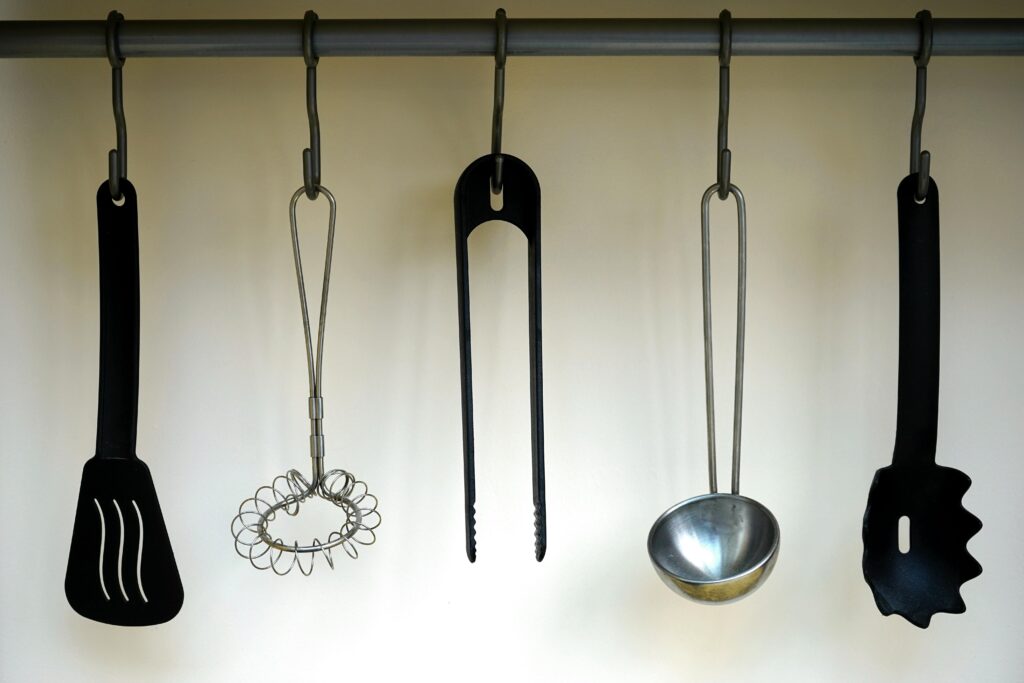In the modern world, having the right tools and equipment is vital for professionals across various industries. Whether you’re a seasoned chef, an electrician, or a welder, the right tools can significantly enhance productivity and efficiency. This article delves into the essential tools and equipment that every professional should consider for their toolbox, ensuring they are well-prepared for any task.
Understanding the importance of having the appropriate tools and equipment can make a monumental difference in the quality of work produced. Professionals across different fields rely on specialized tools to execute their tasks accurately and safely. As technology advances, so does the complexity and variety of tools available, making it crucial to stay informed about the latest innovations and essentials in your field.
This comprehensive guide will explore various categories of tools and equipment, from kitchen essentials to welding apparatuses. By the end of this article, you will have a better understanding of what tools are indispensable for different professions and how to protect your investment in these critical assets.
Must-Have Kitchen Tools and Equipment

Cooking Tools and Equipment
Every chef, whether professional or amateur, understands the significance of having the right cooking tools and equipment. These instruments not only facilitate the cooking process but also contribute significantly to the quality of the dishes produced. Some of the essentials include:
- Chef’s Knife: A versatile tool essential for chopping, slicing, and dicing.
- Cutting Board: A sturdy surface to ensure cleanliness and precision in cutting.
- Saucepan and Frying Pan: Essential for a variety of cooking methods including sautéing, boiling, and frying.
Investing in high-quality kitchen tools and equipment can transform a mundane cooking experience into a delightful culinary adventure. The right tools ensure precision and efficiency, allowing chefs to experiment and create exquisite dishes. Additionally, maintaining these tools through regular sharpening and cleaning can prolong their lifespan, ensuring they remain reliable for years.
Selecting the right cooking tools and equipment is an investment in one’s culinary journey. Understanding what each tool brings to the table allows for more creativity and confidence in the kitchen, ultimately leading to more successful cooking endeavors.
Baking Tools and Equipment
The world of baking offers its own set of challenges and requires a specific set of tools and equipment. From precise measurements to perfect textures, the right baking tools are crucial for any baker aiming for perfection. Some must-have baking tools include:
- Measuring Cups and Spoons: Essential for ensuring accurate ingredient measurements.
- Mixing Bowls: Versatile for mixing ingredients, proofing dough, and more.
- Baking Sheets and Pans: Necessary for baking cookies, cakes, and a variety of pastries.
Having the correct baking tools and equipment can make the difference between a successful bake and a kitchen disaster. Accuracy is key in baking, and the right tools ensure that ingredients are measured and mixed correctly. Quality materials, such as stainless steel or silicone, often provide better results and are more durable.
For anyone passionate about baking, investing in the right equipment can enhance the overall baking experience. By choosing wisely, bakers can ensure their creations not only look good but taste exquisite as well. Proper care and storage of baking tools can also extend their usability, making them a lasting part of a baker’s repertoire.
Essential Electrical Tools and Equipment
Electricians rely heavily on specific tools and equipment to perform their tasks safely and efficiently. The nature of electrical work requires precision and accuracy, and the right tools are indispensable in ensuring safety and functionality. Essential electrical tools include:
- Multimeter: Used to measure electrical voltage, current, and resistance.
- Wire Strippers: Essential for safely removing the insulation from wires.
- Voltage Tester: A critical tool for ensuring circuits are de-energized before work begins.
Safety is paramount in electrical work, and the right tools and equipment play a crucial role in preventing accidents and ensuring a smooth workflow. Choosing tools with insulated handles, for example, can provide an extra layer of protection against electrical shocks. Regular maintenance and calibration of these tools are also vital to ensure they function correctly.
The complexity of electrical tasks requires not only skill but also the appropriate tools to perform the job effectively. By investing in high-quality electrical tools and equipment, electricians can improve their work efficiency, reduce the risk of errors, and ultimately provide better service to their clients.
Welding Tools and Equipment for Professionals
Welding is a precise and challenging field that demands specialized tools and equipment. For professionals dedicated to this craft, having the right welding tools is essential to creating strong, reliable welds. Some of the critical welding tools and equipment include:
- Welding Machine: The core of any welder’s toolkit, necessary for fusing materials together.
- Welding Helmet: Provides protection from sparks, UV radiation, and intense light.
- Angle Grinder: Used for grinding and cutting metals, preparing surfaces for welding.
Each tool in the welding toolkit serves a specific purpose and contributes to the overall quality and safety of the welding process. The welding machine, for instance, is the centerpiece of any welding operation, and choosing the right type based on the materials and methods used is crucial. Helmets and other protective gear ensure the welder is shielded from potential hazards.
Investing in top-quality welding tools and equipment not only enhances the quality of the welds but also improves safety and efficiency. Ensuring that equipment is regularly maintained and properly stored can significantly extend its lifespan, providing reliability and effectiveness for years to come.
Importance of PPE for Power Tools and Equipment
Personal Protective Equipment (PPE) is a critical component of safety when using power tools and equipment. Ensuring that professionals are properly equipped with PPE can prevent accidents and reduce the risk of injury on the job. Key PPE for power tools and equipment should include:
- Safety Glasses: Protect eyes from flying debris and harmful substances.
- Ear Protection: Essential for preventing hearing damage from loud equipment.
- Gloves: Provide protection against cuts, abrasions, and electrical hazards.
Implementing a comprehensive PPE strategy is essential for any professional using power tools and equipment. Each piece of protective gear is designed to safeguard against specific risks, and it’s important to choose PPE that fits well and is appropriate for the task at hand. Regular training on the use and maintenance of PPE can further enhance workplace safety.
By prioritizing PPE, professionals not only protect themselves but also create a safer working environment. Employers should ensure that all workers have access to the necessary protective gear and are trained in its proper use. This commitment to safety can lead to lower accident rates and a more productive workforce.
Protecting Your Investments: Tools and Equipment Insurance

For professionals who rely on their tools and equipment, insurance is an essential consideration. Tools and equipment insurance offers protection against theft, loss, and damage, ensuring that professionals can continue their work without significant financial setbacks. Key aspects of tools and equipment insurance include:
- Coverage for Theft and Loss: Protects against the financial impact of stolen or lost tools.
- Damage Protection: Offers compensation for tools damaged in accidents or natural disasters.
- Liability Coverage: Provides protection against claims related to the use of tools and equipment.
Investing in tools and equipment insurance is a prudent decision for any professional. Such coverage provides peace of mind, knowing that in the event of an unforeseen incident, the financial burden is minimized. Understanding the terms and conditions of the policy, including any deductibles or exclusions, is crucial to ensure adequate protection.
By securing tools and equipment insurance, professionals can focus on their work without the constant worry of potential losses. This security allows for uninterrupted workflow and the confidence to invest in high-quality tools that enhance productivity and efficiency.
Conclusion
In conclusion, having the right tools and equipment is indispensable for professionals across various fields. From kitchen essentials to welding apparatuses, each tool serves a specific purpose and contributes to the overall success of the task at hand. The importance of investing in quality and maintaining proper safety measures cannot be overstated.
Professionals should not only focus on acquiring the right tools but also prioritize safety through the use of PPE and consider the benefits of tools and equipment insurance. By doing so, they can ensure a safer, more efficient, and productive work environment.
As you consider expanding or upgrading your toolbox, remember that the right tools can transform your professional capabilities. Embrace the power of proper equipment and take the necessary steps to protect your investments. For more insights and advice on choosing the perfect tools for your profession, don’t hesitate to reach out to experts in the field.
Ready to upgrade your toolbox? Explore our curated list of top-rated tools and equipment to enhance your professional toolkit today! Visit our website for exclusive deals and expert advice tailored to your field.
FAQ
1) Why are the right tools essential for professionals?
Having the right tools enhances productivity, efficiency, and safety. It ensures tasks are executed accurately and reliably, leading to higher quality work.
2) What are some must-have kitchen tools for chefs?
Essential kitchen tools include a chef’s knife, cutting board, and saucepans. These tools facilitate various cooking methods and ensure precision in food preparation.
3) Why is PPE important when using power tools?
PPE, such as safety glasses, ear protection, and gloves, protects against injuries. It ensures safety by safeguarding against specific risks associated with power tools.
4) What are the benefits of tools and equipment insurance?
Insurance protects against theft, loss, and damage, minimizing financial setbacks. It provides peace of mind and ensures continuity in professional work.